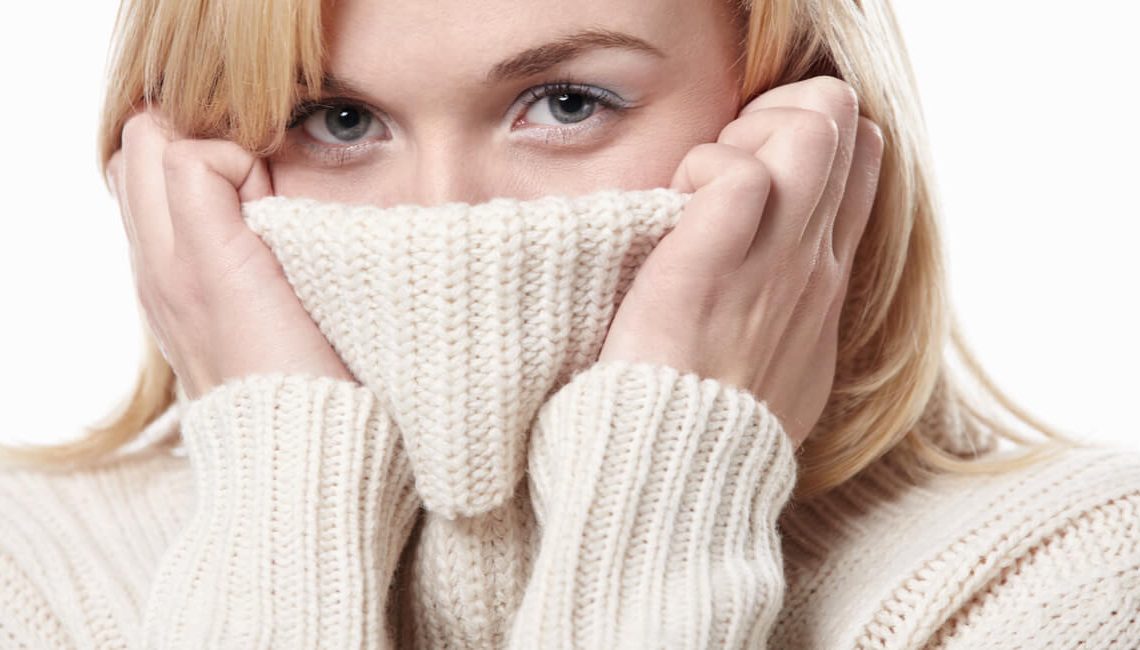
Delicate skin has difficulties standing the transition from warm autumn to cold winter. What can we do to defend it from low temperatures and dry air?
Finally, the winter holiday season! But your skin won’t rejoice with you unless you adapt your skincare routine to the changing environmental conditions, both indoors and outdoors. The main culprit for these changes is a fall in humidity levels, due both to the cold and to indoor heating. Less humidity means dryer skin, making it rough, flaky and wrinkly. Dry skin feels taut, can itch, desquamate, crack and even bleed. For many these are considered minor season-related incidents, but for children, the elderly and people suffering from dermatological conditions, they can significantly worsen their health and cause them to fall ill.
Soothing tricks for dry skin.
Starting from the way you wash, showers and baths have incredible effects on our skin’s condition. Before you begin, close the bathroom door to trap the humidity created by the hot water in the room. Limit your shower time to 5-10 minutes, and try to use lukewarm water. Use a delicate detergent with a slightly acidic pH, and apply an amount which is sufficient to remove the dirt and grease, but without going over the top: the foam must never be too dense. After rinsing abundantly, delicately dry the skin by dabbing yourself with a soft towel. To finish, always apply moisturiser.
The products and ingredients you should use.
Unguents, creams and moisturising lotions are good for your skin because they trap existing humidity, but not all products are equally effective. Unguents and creams are more effective and less irritating than lotions. Try to use a cream or unguent containing plant oils like olive or jojoba oil. Shea butter is also quite effective. Other dryness-soothing ingredients are lactic acid, urea, hyaluronic acid, dimethicone, glycerine, phospholipids and ceramides. Try to avoid petroleum jelly, vaseline and silicone oils: these stay on the skin’s surface and aren’t absorbed, and by so doing block the skin’s pores.
Lips and hands.
Some skin areas are at a greater risk of drying out: ones which are exposed to the elements, like the face, and ones which are washed often, like the hands. In this case you should carry a non-greasy cream with you and apply some every time your skin feels taut, or after washing your hands. Most importantly, use gloves to protect your hands from the cold.
Your lips, too, suffer the cold, so remember to use lip balm several times a day. The choice of a protective, soothing product for one’s lips is highly personal, as is the skin’s reaction to many of these products: some balms can irritate the skin, even healing ones! If your lips sting or itch after applying lip balm, it means the product isn’t right for you. One often has to change several products before choosing the one that makes your lips soft and moisturised without eliciting an allergic reaction.
Treatments and habits to avoid.
Exfoliating and anti-aging treatments, some cosmetic ingredients like retinol and retinoids or alpha-hydroxy acids are often too aggressive for dry, sensitive skin, and these products should be avoided during the winter. The same goes for perfumed soaps, alcohol-containing deodorants and some perfumes. Cutting out aggressive products will help your skin retain its natural emollience.
Skin in winter is intolerant to fabric and washing powder. Better wear cotton or silk fabric in direct contact with the skin, under wool or other rough garments. Regarding washing powder, choose biodegradable, skin-friendly, clinically tested products. Last but not least, avoid direct exposure to the warmth of a fireplace or central heating. Sitting in front of open flames or other heat sources can dry out the skin. Lastly, properly humidify your living spaces, especially if there are children in the house.
Winter can be an awesome season, if you’re comfortable in your own skin
Article of Dr Adele Sparavigna for https://4me.styl


